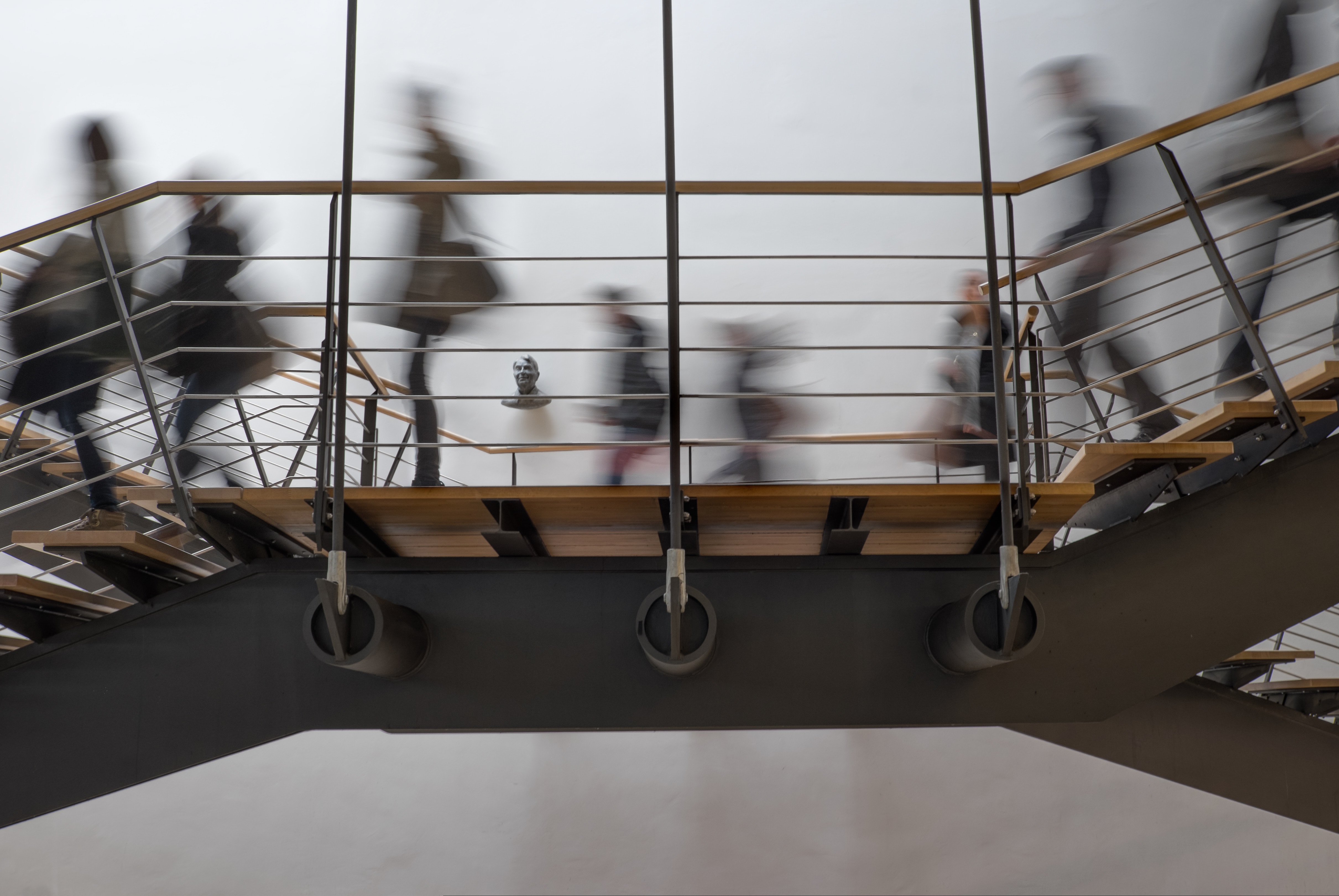
Hi Everyone, this month’s blog will be discussing life at King’s! Here we describe a typical week in the life of an MSc student at the IoPPN and answer some frequently asked questions.
Term 1
Monday, Tuesdays and Fridays: I usually have lectures starting at 10am which is nice so that I don’t have to wake up too early for my 1.5-hour commute to Denmark Hill. I try to make the best out if my time on the tube by doing some extra reading for the lectures that day. Lectures typically end at around 4pm and I usually go straight to the Weston Education Centre library which is open 24/7 so it is very convenient. To stay on top of revision I try to go over and make lecture notes each day so that I can easily review them before my exam.
Wednesdays: I volunteer as a research assistant at the Social, Genetic Developmental and Psychiatric (SGDP) centre, for a study exploring EEG in eating disorders, so I typically spend the day helping out with EEG testing or data handling from around 11-6:30pm. Although this is a big commitment and I am not being paid, I see this as very beneficial for my future career and would recommend that anyone wishing to do a PhD try and get some kind of research experience.
Saturday and Sundays: Depending on my workload, I either stay at home and sleep or I go to the Franklin-Wilkins library at Waterloo Campus. I like this library because of its location in Central London, it is easier for me to travel there. A great benefit of studying at King’s is being able to access so many libraries at different locations. I often get agitated going to the same library every day, so I like to switch it up often.
I often attend talks at King’s, which is a great opportunity to hear directly from experts in their field and a chance to discuss topics with them directly. I also often volunteer as a participant in studies, as well as earning a bit of money I enjoy contributing to the research community and it is also great for developing research experience.
What I’m enjoying about the course
I really enjoy the ability to specialise in a specific field, for example I am specialising in cognitive neuroscience. I enjoyed every single one of my lectures as part of the Cognitive Neuroscience module, it’s like my personal interests and academic life have merged into one, something I haven’t really experienced before. Furthermore, I love that we are so involved in research; as well as doing a research project, we are taught by lecturers undergoing research and there are many opportunities for research experience.
My #1 Tip
Networking is everything! Having a good relationship with lecturers and PhD students, will open many doors for you, don’t be afraid to volunteer for workshops, and ask questions in lectures. I know this may sound daunting but if you do a bit of extra reading around the topic and you show genuine interest, you will come across positively. Having good connections will allow you to get your project of choice and give you better opportunities for work experience or even PhD places.
Term 2
Monday: I go to my clinical placement with a community mental health team in Brixton 9:00am-17:00pm. Luckily for me, it’s not far from my flat (in Clapham) or from Denmark Hill campus. so I can study at the library afterwards for a couple hours in the evening or go home and watch Netflix.
Tuesday & Thursday: Lecture 10:00-12:00 and 13:00-15:00 pm. I usually bring my lunch and heat it up in the microwave at the IoPPN canteen to save money! In the afternoon I like to study in the library at the Weston Education Centre (WEC).
Wednesday & Friday: I work at my part-time job 9:00-17:00 pm which is very close to strand campus so I will sometimes study at Maughan library after work if I have a lot on. It’s a beautiful old building with a lot of study space.
Saturday & Sunday: Spend time with family and friends. Netflix. Run errands, grocery shop, clean and general adult duties. Study.
I try to go to the gym in the mornings around 3 times a week. I always feel physically and mentally energized afterwards. Last term I played football with King’s but I wanted to workout on my own schedule this term. Honestly, outside of work, placement and lectures, my schedule really varies. If there’s an imminent deadline I’m in the library as much as possible. Other weeks I’ll attend a King’s career event, go to the pub in the evening, or relax at home.
What I’m enjoying about the course
I really like the variety of different lecturers across the modules, including psychiatrists, clinical psychologists and researchers. They each bring a new perspective and keep things interesting. The placement has been great to observe some of the concepts I have learned in lectures. Overall, I have a lot going on, but I wanted to experience as much as possible while I’m here. I’m happy with how things are going so far!
My #1 Tip
Get involved! Don’t miss out on all the opportunities at IoPPN, King’s and London in general. Whether you’re interested in career-focused events, sports, travel, art, volunteering etc. Participating in any of these activities alongside your studies can be a place to meet friends, enhance your CV and have fun!
Our Top 5 Frequently Asked Questions about Life at King’s
Q: Do I have to do any reading for my programme before arriving at the IoPPN?
Aisha: It varies by course, for mental health studies we didn’t have to do any prior reading this year. Your programme’s administrator should be in touch with any details closer to the start of your course.
Q: How can meet new people at King’s?
Aisha: If you’re not already a member join the Facebook group IoPPN Postgraduate Class of 2018. Some people have also made Facebook groups for their specific courses and advertised them there. Last year I went to the international student orientation it was a good way to meet new people. There’s also plenty of clubs/sports run by KCLSU. I’ve personally had fun at events put on by the ACS, as well as KCL LGBT+.
Q: Can I keep my part time job while undertaking a full time MSc course?
Shabani: Although many people do continue to work part-time during their MSc, it really depends on how flexible your employer is since MSc work must always come first, and how your individual course is structured. The workload will differ for each course, regardless, it is important to be very organised and be able to keep a healthy work-life balance.
Q: What is the typical weekly workload like and how much extra study do I need to do?
Shabani: Again this really depends on the course and I can only speak from my own experience studying MSc Neuroscience. There are roughly 12 hours of lectures a week, spread out over 3 days. However since the course is quite intense I have found that I have had to study a minimum of 15 extra hours a week in order to stay on top of revision and essay deadlines. By studying continuously throughout the term, I am able to avoid the last minute panic before an exam because I have a good understanding of the information. Having a solid understanding of previous lecture material also helps me keep focussed in other lectures.
Q: Will I get any support during my studies?
Shabani: All courses at the IoPPN provide personal tutors for every student. Your assigned personal tutor is there to provide pastoral support and advice regarding things like time management and application processes. MSc Neuroscience also provides students with teaching support sessions, where small groups of students meet with an academic member of staff and go over the lecture materials. These sessions are student led so can be used to discuss material covered in the course. My group decided that each person would present a topic to the rest of the group in turns and then we would discuss the topic and anything we were struggling with. I found this very helpful while revising, because discussing the material gave me a better understanding of the topic.



Leave a Reply